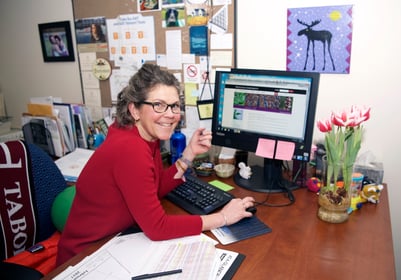 From the desk of college counselor Lauren Boucher:
From the desk of college counselor Lauren Boucher:
Hand-wringing and angst were prevalent for Tabor seniors with a choice to make leading up to May 1, National College Decision Day, but in the end everyone has a plan. The class of 2017 will be represented at colleges of art and design, women’s colleges, institutes of technology, major research universities, state flagship universities, maritime academies, Ivy League universities, private colleges peppered throughout the country, and international universities across the globe.
Now, with deposits paid and three weeks of their year left, seniors are moving on and look forward to early morning sunrises over the harbor, a memorable prom, and senior project presentations. This is not the case for Tabor juniors, however.
What do juniors have on their minds? Finishing the year strong. Preparing for SAT and ACT tests. Considering what’s important to them and having thoughtful conversations with their counselors. Creating college essays that are unique and chock-full of voice.
When Drew Carter, senior associate director of admissions at Holy Cross, visited with the junior class recently, he asked them to focus on the things they CAN control in the college process as opposed to those they cannot. For example, students cannot control where they are from, their race or ethnicity, or how much their parents are able to pay for college. They can, however, control the effort and energy they contribute in the classroom and how often they seek out their teachers for advice on how to improve a paper or how to best tackle a mathematics problem. On top of that, students have the ability to prove that as the strength of their courses increases, so does their performance.
Something else that juniors have the ability to control is how they demonstrate interest in a college. If juniors are able, they should visit campuses, sit in on information sessions, ask questions, and go on tours. If a college offers an interview, don’t be foolish, sign up! Mr. Carter asked juniors to remember that interviews are conversations, not opportunities for admissions representatives to ask trick questions.
The final segment of Mr. Carter’s presentation was about the mindset behind the personal statement, better known as the college essay. This is the part where the paintbrush is in a student’s hand. While what a student writes about is less important, Carter stressed that it’s how a student feels about his or her topic that makes a difference. He said, “Sit down in front of your laptop and open a new document. There’s your power.”









